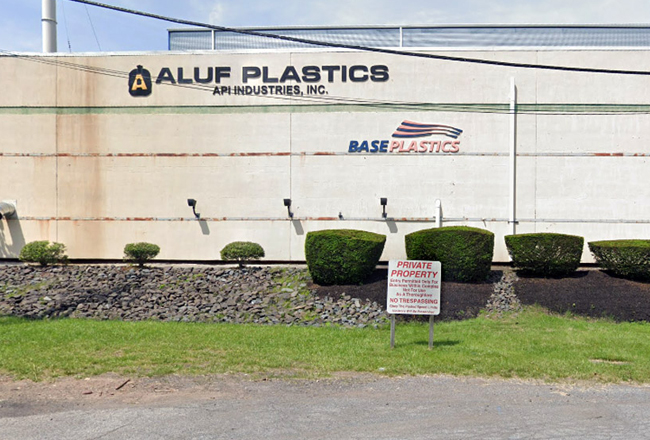Aluf Plastics claims that Orangetown law, not its factory, stinks
Aluf Plastics in Rockland County is suing Orangetown for allegedly trying to shut down its factory by criminalizing offensive odors that the company claims do not exist.
API Industries Inc., the parent company, is asking U.S. District Court in White Plains to declare a new zoning law that targets offensive odors as invalid.
“The action seeks to stop a concerted and illegal effort by defendants to rewrite a local law to target Aluf and shut down its operations,” the June 12 complaint states.
“The defendants have indeed undertaken a relentless, vindictive attack on Aluf ”“ an Orthodox-Jewish-owned-and-run company ”“ by issuing countless violations and seeking to impose the maximum penalty for these alleged infractions.”

Town Supervisor Teresa Kenny, who was named as a defendant with the previous supervisor, Christopher Day, did not respond to a message asking for comment.
Aluf relocated to Orangetown in 1986, according to the complaint, when it was recruited by the Rockland Industrial Development Agency.
The company makes trash can liners, medical gowns and other products from plastic pellets, in a 500,000-square-foot facility that employs nearly 400 people.
For more than 25 years, Aluf claims, there were no tensions with the town. Then four years ago, local residents formed Clean Air for Orangetown and focused on unpleasant odors believed to be emanating from Aluf.
One member of the group allegedly submitted more than 90 odor complaints. The town “ultimately capitulated” to pressure from the group, according to the lawsuit.
The company suggests that the pressure was motivated by recent religious tensions and anti-Semitic acts in Rockland County.
In 2016, a building department official was allegedly ordered to write up Aluf whenever odor or pollution complaints were received. It was cited for 13 code violations in one eight-day period.
The town hired Langan Engineering to test air quality around the factory. The consultant, according to the complaint, did not detect any unusual odors, and the chemicals it did find were below regulatory thresholds.
The state Department of Environmental Conservation also sampled the air, the lawsuit states, and could not connect offensive compounds to Aluf.
Orangetown hired another consultant, TRC, to check the air.
“The results indicated that a source other than Aluf was contributing to increased levels of ”¦ compounds that have the potential to cause odors,” the complaint states.
TRC was hired to do another study. The consultant found consistent levels of volatile organic compounds, when the facility was and was not operating, according to the complaint, suggesting that Aluf was not the source.
Aluf states that it has spent more than $1 million since 2016 to upgrade odor control systems. The company also notes that it operates in an industrial corridor with a dozen industrial facilities that could generate offensive smells, such as the Orangetown Wastewater Treatment Facility, Organic Recyling Inc., Innovative Plastics Corp. and Bailey”™s Smokehouse.
None of those facilities, Aluf claims, has been singled out for scrutiny.
In 2017, Orangetown beefed up its zoning code to prohibit facilities from emitting objectionable odors that could cause injury or create a nuisance or annoyance to the public. The town can base a violation on a resident”™s complaint, according to the company, but does not have to verify the complaint with an olfactometer.
The penalty for the first violation was increased four-fold to $20,000. A second violation costs $40,000 and the third, $60,000.
Last year, Town Justice Court found Aluf guilty of violating the revised law on five days and assessed a $75,000 penalty. The company is appealing the decision.
Six more violations have been charged and an August trial has been scheduled.
By relying on subjective criteria and selective enforcement, Aluf claims, Orangetown is violating state and federal due process laws and the equal protection clause of the Fourteenth Amendment.
The company is represented by Megan R. Brillault, Michael G. Murphy, John H. Paul and Jose Almanzar of Beveridge & Diamond PC of Manhattan.